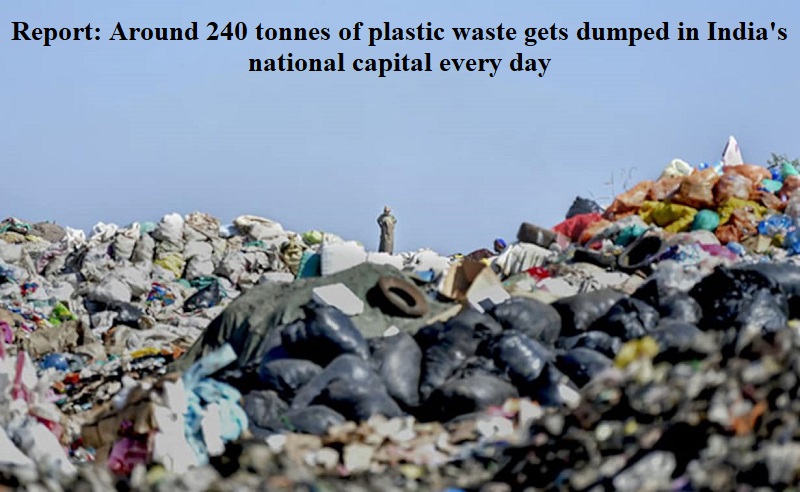
Currently, the national capital of India, New Delhi, is generating over 1,100 tonnes of plastic waste daily. However, only around 870 tonnes per day are being managed or recycled, leaving a gap of 242 tonnes per day or approximately 22% of the total plastic waste load in Delhi. This unmanaged waste either ends up in drains, landfills, or contaminates the River Yamuna, according to the latest data.
To address this issue, New Delhi has set a target to bridge this gap completely by June 2024. Experts believe that officials will need to put in much more effort, especially considering the unsuccessful implementation of the ban on 19 single-use plastic items.
During a meeting with the high-level solid waste monitoring committee, municipal bodies shared data indicating that the current plastic waste generation in the capital is 1,113.25 tonnes per day, with only 871.25 tonnes per day being processed. This leaves a gap of 242 tonnes per day that requires immediate attention. The committee, headed by Delhi Lieutenant Governor VK Saxena, was appointed by the National Green Tribunal (NGT).
Atin Biswas, the program director of the municipal solid waste sector at the Centre for Science and Environment (CSE), emphasized that waste segregation is crucial for finding a solution to the waste problem. Biswas stated that Delhi is not segregating its waste like other cities, and until waste segregation at the source is achieved, the target of June 2024 seems highly unlikely.
Furthermore, Delhi is also falling behind its single-use plastic goals. Despite the ban on 19 SUP items from July 1, 2022, onwards, these items are still commonly found in the city’s markets. Many shop owners, like Bhiku Ram, continue to use plastic straws and spoons due to substantial price differences with alternatives. There is a need for agencies to enforce the ban more effectively and for consumers to change their mindset and choose alternatives to plastic.
Additionally, the government of Delhi has announced plans to clear all three dumpsites in the capital. The Okhla dumpsite is expected to be cleared by December 2023, Bhalswa by March 2024, and Ghazipur by December 2024. These dumpsites cover a total area of 200 acres and hold approximately 28 million tonnes of legacy waste.

Post Your Comments